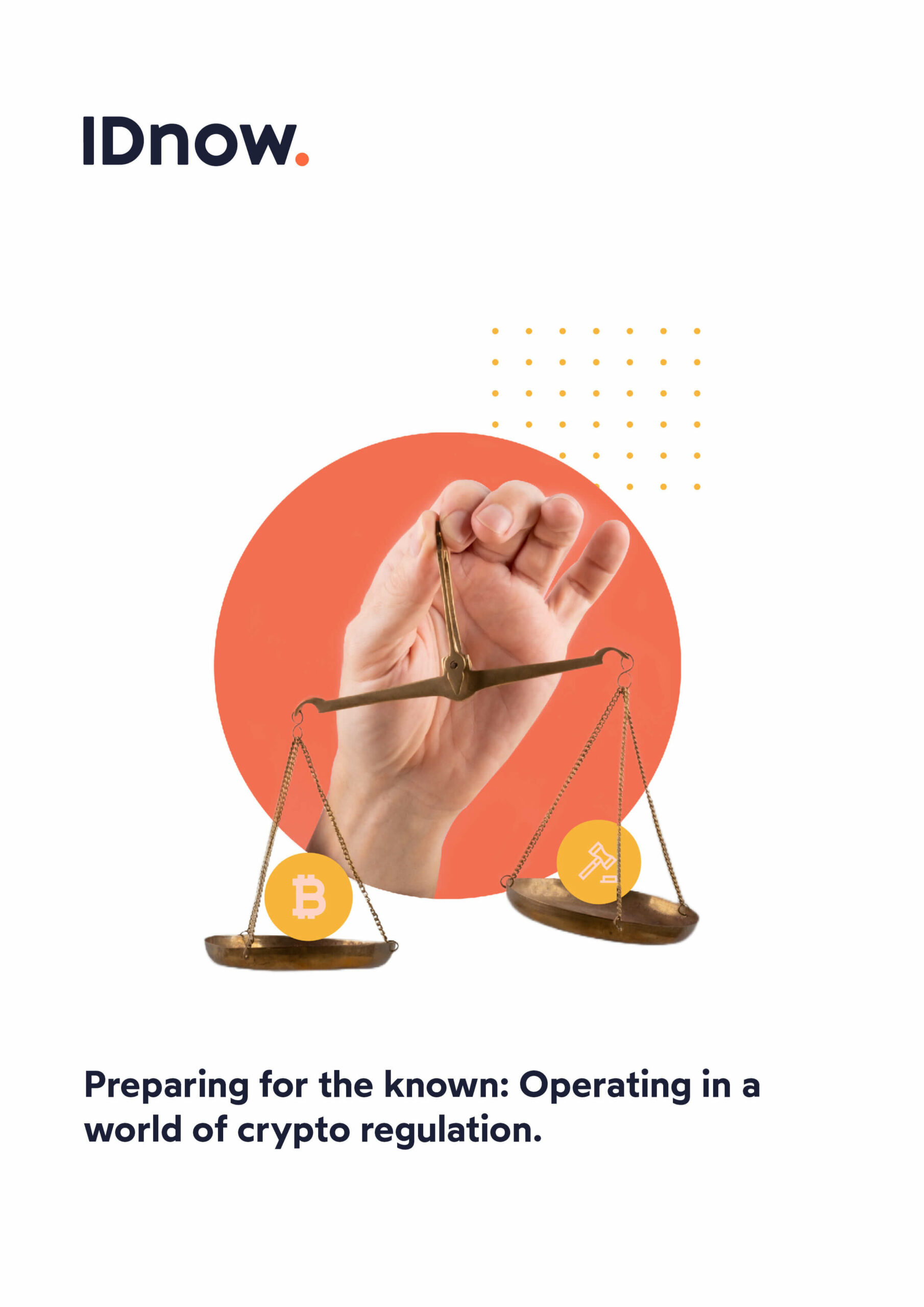IDnow sits down with Brandi Reynolds, CAMS-Audit, CCI, CCCE at Bates Group to discuss what traditional banks can learn from crypto asset providers, and the unlikely role of blockchain technology.
What are some of the unique challenges that financial institutions must face in developing an effective compliance program for cryptocurrency?
Financial institutions must take steps to understand the unique AML and compliance risks associated with cryptocurrency, especially around transaction monitoring rulesets and the fragmented regulatory landscape.
Would you advise financial institutions tackle cryptocurrency separately, or attempt to bring crypto into the fold of an existing compliance program?
Crypto will require unique policies and procedures, especially around transaction monitoring, but it can be incorporated into an existing compliance program. However, this is contingent on the types of products and services being offered – for instance, a crypto product which includes both traditional (fiat) as well as digital assets may be able to draw on elements of an existing compliance program, but a product that is purely digital will likely require, at minimum, an expansion of policies and procedures to address its specific risks.
What is your opinion on the pace of the global development of regulations and compliance best practices, as they relate to cryptocurrency?
The pace of regulations and best practices is irregular and fragmented, since the development of regulations is proceeding at radically different pace across the globe, and even within individual countries (such as the varying levels of state-specific regulations in the US)
Is there a particular region, or country that you would consider further along in its journey toward offering a safe and compliant regulatory framework for cryptocurrency?
Singapore and Estonia represent the most developed and stable regulatory frameworks globally. Within the US, while the regime is strict, the New York BitLicense represents the most well-developed regulatory framework for cryptocurrency, to the point where other states such as California are using it as the basis for their own comprehensive regulations.
If a financial institution was deliberating as to whether to either accept, or launch a crypto trading platform, what would you say are three major advantages (rewards) and three challenges (risks) of doing so?
The three main advantages would be: large amount of available potential investor capital, expanding use cases and user base for crypto products and services, and the diversification of investments and revenue streams.
For disadvantages, I would say: increased regulatory scrutiny, highly volatile markets with a high risk of business failure, and increased exposure to AML and fraud risks.
How important is the role of technology, and in particular KYC onboarding platforms, in enabling crypto firms to offer a safe and secure crypto customer experience?
Technology is critical for operating a risk-based crypto compliance program. In particular, blockchain monitoring software, which allows firms to risk rank wallet addresses and analyze their transaction activity, is becoming de facto required by regulators.
Blockchain monitoring should be incorporated into the KYC process and should be seen as essential as practices such as collecting and verifying a photo ID.
Brandi Reynolds, CAMS-Audit, CCI, CCCE at Bates Group
Are there any things you think the traditional banking sector could learn from the crypto space regarding best compliance and anti-money laundering practices?
The use of the blockchain as a recordkeeping system is revolutionary from a compliance standpoint, in that it allows a firm to instantly trace the movement of cryptocurrency through every wallet address it has ever interacted with. This makes identifying exposure to sanctioned, criminal, or high-risk entities much easier than in the traditional financial system, where a similar investigation could take months if not years. Thus, while crypto may have a higher inherent risk of being exploited by bad actors, this is offset by the ability to more easily identify suspicious activity on the blockchain.
With so many different rules and regulations pertaining to cryptocurrency across the world, how can financial institutions ensure they continue to operate compliantly and adhere to KYC best practices?
Financial institutions should carefully consider the types of crypto products they would like to offer and assess their inherent risk, including their customer bases’. This should include an assessment of the jurisdictions where the products would be offered and associated regulatory risks and requirements.
How would you assess the MiCA regulatory framework? Does it go far enough? Are there any glaring loopholes, or omissions?
It’s still too early in the development process to assess its impact.
While MiCA will apply to all member states of the EU, there is no requirement that it be implemented at the level of national law, which presents potential restrictions on the passporting of licensing through the EU.
Brandi Reynolds, CAMS-Audit, CCI, CCCE at Bates Group
It may also present additional regulatory burdens on firms due to its emphasis on consumer protection. However, MiCA will present a unified framework which will greatly simplify other aspects of regulatory compliance.
As the UK is no longer part of the EU, and therefore subject to its AML and crypto regulatory requirements [especially MiCA], would you say this puts UK crypto shops, and UK crypto consumers at an advantage or disadvantage?
There is a disadvantage in that UK crypto firms must pursue two tracks of regulatory registration and approval, one in the UK and one in an EU country. This increases the regulatory burdens on firms as they must comply with two distinct sets of regulations and increases the possibility of conflict between regulations, especially given that the UK is currently considering regulatory changes.
Interested in more Fintech Spotlight Interviews? Check out our interview with David Gyori, CEO of Banking Reports.
By

Jody Houton
Content Manager at IDnow
Connect with Jody on LinkedIn
Preparing for the known: Operating in a world of crypto regulation.




